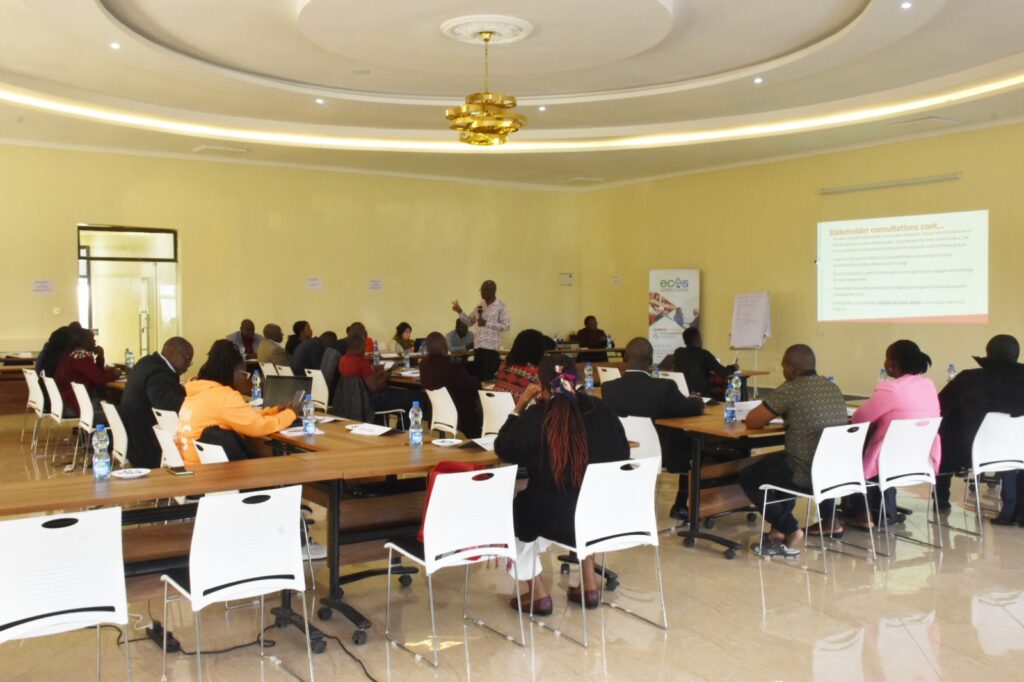
CONCEPT NOTE
INTERNATIONAL TRAINING ON SUSTAINABLE ENERGY AND ENERGY SCHEMES
COURSE BACKGROUND
The transition to sustainable energy is essential for achieving global climate goals, ensuring energy security, and promoting economic development. With increasing demand for clean, reliable, and affordable energy, governments, businesses, and communities must adopt innovative energy schemes that integrate renewable energy technologies, energy efficiency, and sustainable energy policies.
This course, offered by the Environmental Capacities and Sustainability (ECAS) Institute, provides a comprehensive understanding of sustainable energy solutions and their role in mitigating climate change, enhancing energy access, and supporting green growth. It explores renewable energy systems, smart grid technologies, energy efficiency strategies, and financial models that support the transition to low-carbon and resilient energy systems.
Through expert insights, real-world case studies, and interactive training methods, participants will gain the knowledge and skills needed to design, implement, and manage sustainable energy projects and policies.
COURSE OBJECTIVES OF THE TRAINING
By the end of this course, participants will be able to:
- Understand the fundamentals of sustainable energy and its role in climate mitigation.
- Analyze different renewable energy technologies and their applications.
- Assess energy policies, regulations, and financial mechanisms for sustainable energy development.
- Develop strategies for improving energy efficiency in different sectors.
- Explore decentralized energy solutions for rural and urban areas.
- Examine smart grid technologies and their role in sustainable energy systems.
- Identify opportunities and challenges in scaling up sustainable energy schemes.
- Design and implement sustainable energy projects using best practices.
WHAT YOU WILL LEARN
Participants will gain in-depth knowledge in:
- Renewable energy technologies (solar, wind, hydro, biomass, and geothermal).
- Energy efficiency and conservation strategies.
- Sustainable energy policies and regulatory frameworks.
- Financing mechanisms and business models for sustainable energy projects.
- Smart grid and decentralized energy solutions.
- Integration of sustainable energy into national and regional development plans.
- Challenges and solutions in energy transition and green energy adoption.
- Case studies on successful sustainable energy projects worldwide.
DURATION AND PROGRAM
TARGET PARTICIPANTS
This course is designed for energy professionals, policymakers, environmental planners, engineers, business leaders, researchers, and development practitioners involved in energy planning, renewable energy development, and climate change mitigation.
It is also suitable for government agencies, international organizations, NGOs, private sector players, utility companies, financial institutions, and community leaders working towards sustainable energy access, energy efficiency, and climate resilience.
TRAINING MODULES
| No | Module | Details | |
| 1. | Introduction to Sustainable Energy |
|
|
| 2. | Renewable Energy Technologies and Applications |
|
|
| 3. | Energy Efficiency and Conservation Strategies |
|
|
| 4. | Sustainable Energy Policies and Regulations |
|
|
|
5.
|
Financing and Business Models for Sustainable Energy |
|
|
| 6. | Smart Grids and Decentralized Energy Solutions |
|
|
| 7. | Sustainable Energy for Rural and Urban Development |
|
|
| 8. | Case Studies and Best Practices in Sustainable Energy |
|
|
TRAINING STYLE
This course utilizes an interactive and practical learning approach, combining expert lectures, case study analysis, policy simulations, hands-on exercises, and group discussions. Participants will engage in real-world energy project assessments, data-driven decision-making exercises, and scenario-based planning to enhance their understanding of sustainable energy solutions.
The training will also feature peer-to-peer learning, site visits (where applicable), and networking sessions with industry experts, policymakers, and practitioners. This ensures that participants gain both theoretical knowledge and practical skills to apply sustainable energy solutions effectively in their professional roles.
GENERAL NOTES
- Training manuals and additional reference materials are provided to the participants.
- Upon successful completion of this course, participants will be issued with a certificate.
- We can also do this as a tailor-made course to meet organization-wide needs. Contact us to find out more: info@ecasiafrica.org.
- Payment should be sent to our bank account before the start of training and proof of payment sent to: info@ecasiafrica.org.
ABOUT ECAS INSTITUTE
The ECAS Institute designs and delivers independent and targeted training, research, and consulting services. Our work focusses on climate change and resilience building, carbon markets, renewable energy, nature-based solution, biodiversity conservation, agriculture and food systems, We are located in Nairobi Kenya and work across the African region. We have implemented training and research assignments in Kenya, Tanzania, Uganda, South Sudan, Somalia, Malawi, Rwanda, Congo, and South Africa. Globally, we have supported our partners from the UK, Denmark, Italy, Sweden, Germany, and USA.

